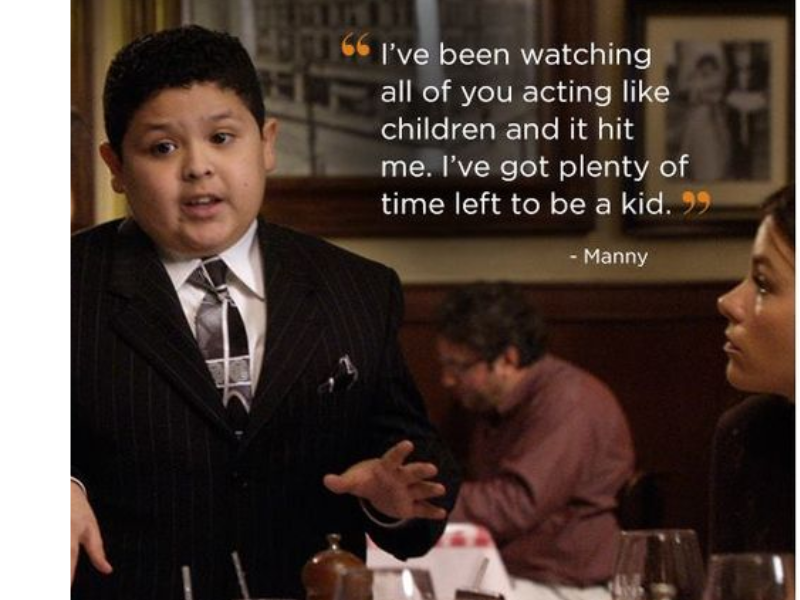Gone are the 20th-century days when the view of bilingualism was poor, and parents didn’t want their children to learn two languages. Now everyone wonders why bilinguals are smarter than monolinguals.
Scientists have been trying to find the reason for some time now. And as it turns out, the causes are more than one.
For example, a study by NYU shows that brain switching is natural for bilinguals, making them smarter. Moreover, bilinguals can control and direct their brains. Many reasons continue to show up as scientists continue to research.
So, if you want to know how bilinguals can “pull a Gloria Pritchett” now and then, I have six reasons for you.
6 Reasons Why Bilinguals are Smarter
Language ability is measured in two parts: active and passive. Active parts involve speaking and writing, while passive ones involve listening and reading.
Research says compound bilinguals have abilities across the board in two languages. Let’s find out the deciding factors behind this ability.
1. Bilingualism Helps in Response
Bilingualism enriches the brain by enhancing response. According to research by the NIH, bilingual children respond to auditory tests better than monolingual children.
Agreeing with the result, Hillary Sibille, a Spanish teacher, says learning a second language profoundly affects the brain of children. In turn, it increases students’ cognitive skills, and they respond differently to difficult situations. Moreover, they can see various colors, which monolinguals cannot.

Want your child to speak Spanish like a native? Enroll them in EnthuZiastic’s Spanish A-level classes.
2. Bilingualism Enhances Emotional Intelligence
Bilingual people are more emotionally intelligent compared to monolinguals. A recent study shows that learning a foreign language positively affects students’ emotional and social skills and a strong personality.
Bilingual people can put themselves in others’ shoes and understand their thought process better. It helps them to build meaningful relationships with people from every dimension. Moreover, bilinguals have better knowledge of how different people react to different situations and easily tackle every problem.
3. Learning two languages Increases Memory
One doesn’t need a 100+ IQ to understand this one. Bilinguals have to speak more than one language actively, and it increases their vocabulary in both languages. And this, in turn, helps them with their memory.

Researchers say students who learn two languages have enriched cognitive muscles. Moreover, their lifelong practice of actively speaking and writing in two languages has substantial cognitive benefits. For example, bilinguals are less likely to suffer from old-age troubles like Alzheimer’s.
4. Bilinguals learn to solve the problem better than others
Problems are part of human lives, but those who know how to solve them are winners. Bilinguals are one of them. It is proven that due to processing two languages constantly, bilinguals’ brains are more agile.
Their agile brain helps them to focus on problems better, even if they have nothing to do with any language. Moreover, learning two languages help students with their intellectual development and makes them attentive adults.
5. They have Stronger Inhibitory Control
Kids who grow up learning two languages have a strong ability to differentiate between necessary and unnecessary information. Scientifically, it’s known as inhibitory control.
Researchers theorize that bilingual people can outperform monolinguals in tasks due to their extensive brain exercise. Paul Denlinger, a multilingual, explains that learning two languages lets students break internal conflicts by 70% and see the accurate picture.

This enhances their analytical skills, with obvious practical benefits like better jobs, promotions, and such.
6. Bilinguals have Healthier Brain
The last and most crucial part is that bilinguals have a more vital dorsolateral prefrontal cortex or bigger brains. Scientists have found that monolinguals use only the left side of the brain compared to bilinguals, who use both the left and right sides.
This results in an increased bigger neural landscape. Let’s take Manny Delgado from Modern Family, for example. Manny was better at everything he did, from education to fencing to poetry. That’s because he was born to a Colombian Spanish mother but spent all his life in the USA, speaking both English and Spanish.

Manny was also more mature than his peers and connected better with older family members, which was also a big part of the show. This proves that bilingualism has a profound effect on a child’s brain.
FAQs
I am in high school and want to start learning a new language. Is it too late for me?
You are never too late for anything. If you start learning another language, Spanish or Japanese, you will become coordinated bilingual. You will have several cognitive benefits and will be more open-minded.
Which Universities have good language courses?
The University of California, Harvard University, and Yale University are some of the best universities to learn a foreign language. You can also try good language online schools; they are doing well nowadays.
Would learning a new language slow down my child mentally?
Learning a new language will never mentally slow them down or handicap them. On the contrary, your child will be more advanced and reciprocate better to situations. Moreover, bilingualism will delay the onset of dementia.
Will I forget my mother tongue if I learn a new language?
It’s impossible to forget your native language, even if you learn multiple other languages. So, learn as many languages as possible and prepare yourself for global life.

Learn a second language today
Get the tremendous benefits of knowing a foreign language. Learn with the best teachers.
Conclusion
Now you know why bilinguals are smarter. Learning two or more languages makes you intelligent and invincible as a human.
That said, the more you learn several languages in this increasingly globalized world, the better for your career. So, learn as many languages as possible and enjoy every culture from within.

